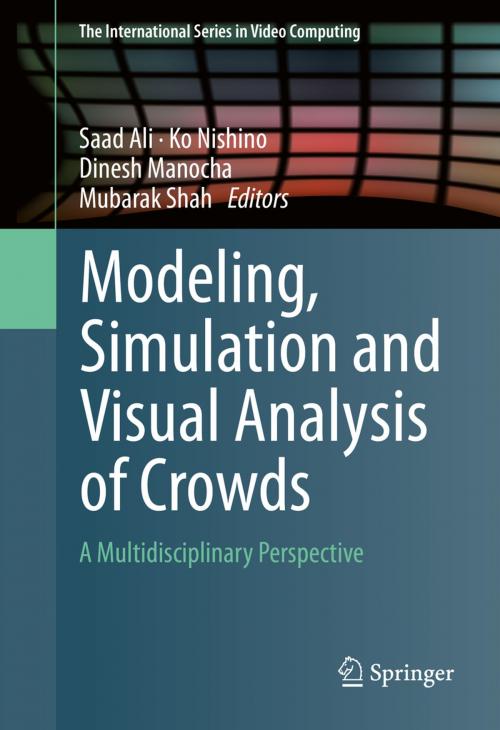Modeling, Simulation and Visual Analysis of Crowds
A Multidisciplinary Perspective
Nonfiction, Computers, Advanced Computing, Engineering, Computer Vision, General Computing| Author: | ISBN: | 9781461484837 | |
| Publisher: | Springer New York | Publication: | November 22, 2013 |
| Imprint: | Springer | Language: | English |
| Author: | |
| ISBN: | 9781461484837 |
| Publisher: | Springer New York |
| Publication: | November 22, 2013 |
| Imprint: | Springer |
| Language: | English |
Over the last several years there has been a growing interest in developing computational methodologies for modeling and analyzing movements and behaviors of ‘crowds' of people. This interest spans several scientific areas that includes Computer Vision, Computer Graphics, and Pedestrian Evacuation Dynamics. Despite the fact that these different scientific fields are trying to model the same physical entity (i.e. a crowd of people), research ideas have evolved independently. As a result each discipline has developed techniques and perspectives that are characteristically their own.
The goal of this book is to provide the readers a comprehensive map towards the common goal of better analyzing and synthesizing the pedestrian movement in dense, heterogeneous crowds. The book is organized into different parts that consolidate various aspects of research towards this common goal, namely the modeling, simulation, and visual analysis of crowds.
Through this book, readers will see the common ideas and vision as well as the different challenges and techniques, that will stimulate novel approaches to fully grasping “crowds."
Over the last several years there has been a growing interest in developing computational methodologies for modeling and analyzing movements and behaviors of ‘crowds' of people. This interest spans several scientific areas that includes Computer Vision, Computer Graphics, and Pedestrian Evacuation Dynamics. Despite the fact that these different scientific fields are trying to model the same physical entity (i.e. a crowd of people), research ideas have evolved independently. As a result each discipline has developed techniques and perspectives that are characteristically their own.
The goal of this book is to provide the readers a comprehensive map towards the common goal of better analyzing and synthesizing the pedestrian movement in dense, heterogeneous crowds. The book is organized into different parts that consolidate various aspects of research towards this common goal, namely the modeling, simulation, and visual analysis of crowds.
Through this book, readers will see the common ideas and vision as well as the different challenges and techniques, that will stimulate novel approaches to fully grasping “crowds."















